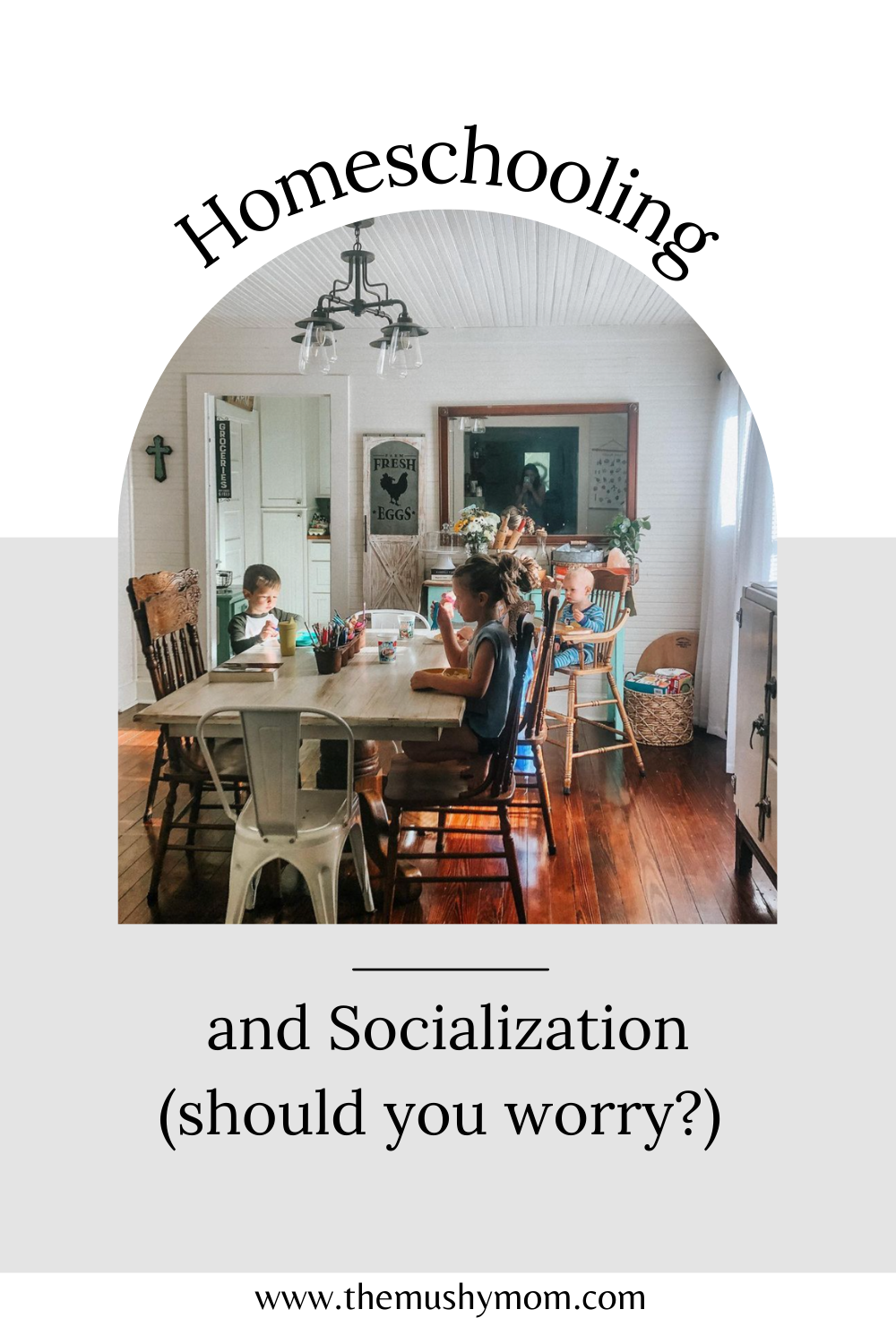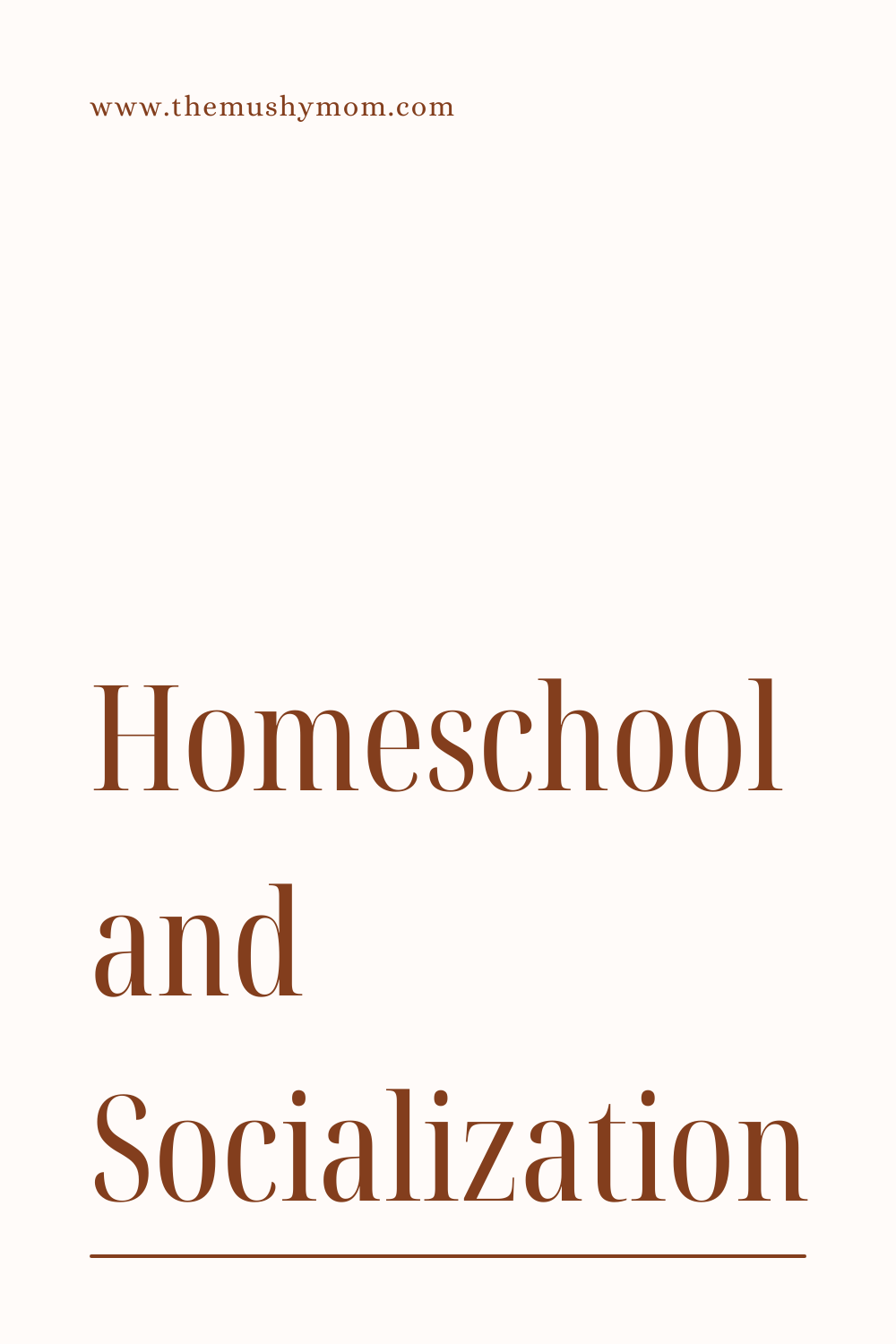Homeschooling and Socialization
Do you know a family that homeschools or have you wondered if homeschooling and socialization can truly go together? Since 2020 the amount of households homeschooling has nearly tripled and there seems to be no evidence of the growth slowing down. Perhaps one of the most talked about facets of homeschool is the myths regarding homeschool and socialization. As a homeschool mother myself, I can tell you that I’ve had the word “socialization” come up in conversations in a way that makes me somewhat cringe.
When homeschooling was placed on my heart, I knew that my husband would likely never get on board. To be honest, we don’t fit the (former) stereotype of homeschool families. We both graduated fairly high up on a roster of 400 students; and my husband was the all star athlete who lettered in four sports and I was the dance team co captain. Our social skills were more than there and we had the time of our lives in our years within the public school system. It was exciting in many ways to think of our children walking through the same halls.
I knew that my husband would question homeschooling because of the “socialization myth” and I was right. To be honest, at first I also wondered if homeschooling my children would truly make them “weird” or shy. However, as I met more homeschool families, I eventually started to realize that not only were these children not weird or lacking in any social skills, but they actually had more social skills than many kids their age.
I think about myself as a young child. My mother was a teacher and I’d head to school with her early in the morning and would be greeted by wonderful teachers saying, “Good morning. How are you?” I dreaded this every day. I was always too shy to answer them and never really cared to return the question of, “How are you?” Here I was an outgoing kid, but completely shy around adults and not always comfortable with holding a conversation. Conversing with adults is an area that I see homeschool students flourish in!
Homeschooling and socialization DO go together. Most parents are not locking their children up in their rooms without letting them outside. Because of the time freedom with homeschooling, some homeschool families actually participate in more extra curricular activities and are more present at church functions which allows for so much social interaction. My children would still receive so much social interaction even if we didn’t do a homeschool group twice per week.
A school setting simply isn’t needed. Have you met your neighbors? Has your child played with the neighbors or their cousins? Have they taken an art class or a dance class? I bet they have. Socialization, check!
Homeschooling may not seat children in a classroom, all of the same age, but it does provide for more real life interactions between children and adults. My children get to come run errands with me and can hold conversations with any store associate. In fact, sometimes I wish they didn’t feel the need to talk so much!
We can no longer pretend that traditional schools are the only way for children to receive socialization. It requires one room with 20-30 students of all the same age who are asked NOT to talk out of turn, NOT to talk during lunch, NOT to talk during work and so on. My first born spent two years in a fantastic public school district and yet was advised not to speak during lunch and frequently lost her outdoor play due to the behavior of the class as a whole (despite her A’s in conduct). How many times has a student moved their conduct clip due to socializing too much? Or how many small children have recess taken away for socializing? Yea, let that one sink in for a bit.
You see, while the traditional school setting does of course allow children to interact with others, it doesn’t always provide the various social settings that homeschooling can provide. Most homeschooling families today are involved in some sort of homeschool co-op, nature group, 4H club or church group that will meet regularly. There’s children of all ages and all grade levels working together to solve math equations and perform fancy science experiments. Older students are assisting lower students and lower students are developing the confidence to hold conversations with adults and older children. All without the fear of “moving their clip” for talking and all while learning from one another.
Homeschooling provides just as much, or even more, socialization than traditional schools. To think that homeschooling will effect socialization in a negative way is simply listening to the old critics all because they knew one “weird” family who homeschooled. And let’s face it…in today’s times, I think I would embrace the weird. While there will likely always be exceptions, I can assure you that homeschooling and socialization go perfectly together and provides substantial results (there’s a lot of research to back this). In today’s day and age of networking, homeschool families are joining together to cultivate a love of learning which in turn is providing all of the social skills needed. It removes the four walls and makes nature or a cozy living room the classroom and provides outlets for children to engage and learn from one another.
Don’t let the fear of socialization affect your desire to homeschool. Or if you know someone who homeschools, don’t mention the “S” word. Just know that their children are likely running through the creek during the day with their nature group and kicking the soccer ball with their peers on the weekends. They are getting their socialization in ways other than a four wall classroom, and that is totally okay.



